Legislative proposal in the UK: an opportunity for the 5GDHC?
D2Grids Project
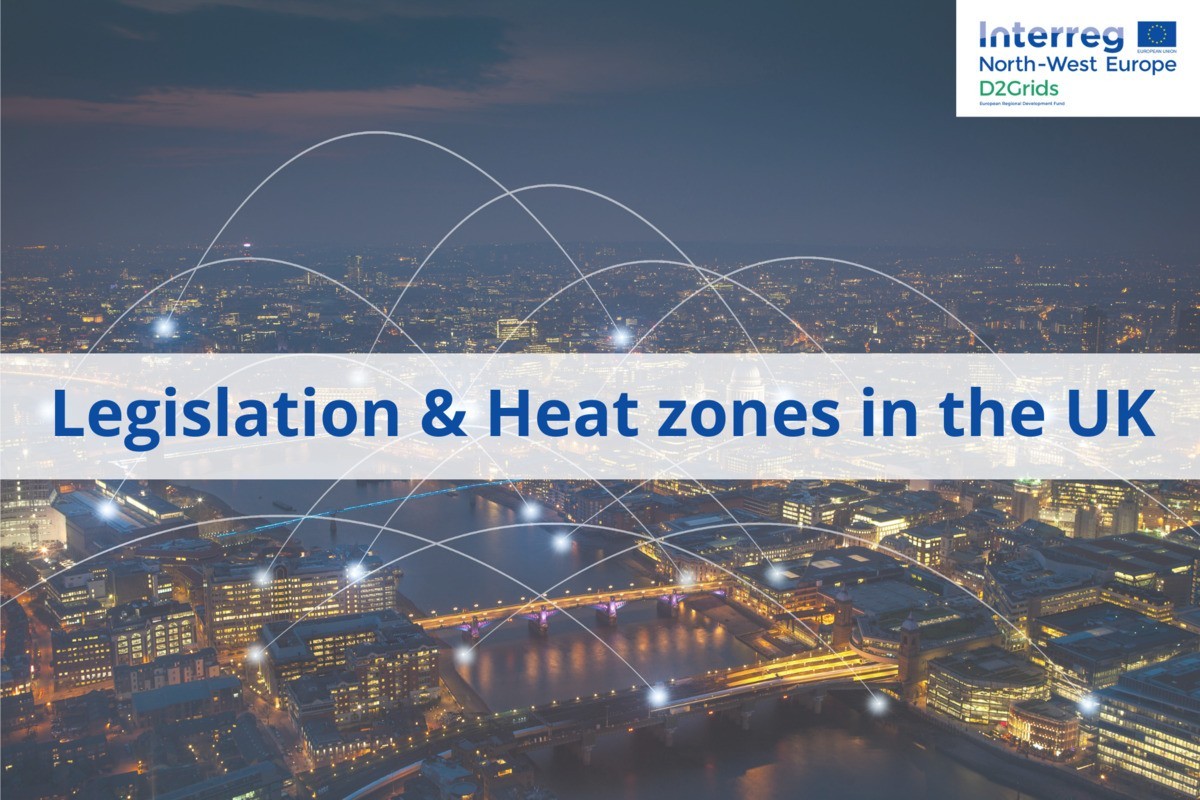
The United Kingdom is introducing an Energy Security Bill, setting up potential development areas for heat networks within the territory. The aim is to supply these areas with heat and cold in a cost-effective and carbon-free way: innovative heat networks and especially 5GDHC will be able to take advantage of this opportunity! The D2Grids pilot site in Plymouth is setting an example for future developments with the ‘District Energy Opportunity Areas’, which will enable the implementation of networks throughout the UK.
UK Context
According to the UK government, heat networks in the UK currently supply approximately 2% of the total heating demand, well below the 8.5% international average reported by the International Energy Agency (IEA). One of the primary reasons for this is that building owners have been able to take advantage of consistently very low gas prices and very low gas boiler costs in the UK.
On July 6th, 2022, the Energy Security Bill was introduced, aiming to deliver a ‘cleaner, more affordable, and more secure energy system’ for the UK. One of its core strategies includes legislation to stimulate the roll-out of heat networks, by designating zones in which connecting to heat network/s would be mandatory for some building owners. The UK government estimates that around 18% of UK heat demand could come from heat networks by 2050.
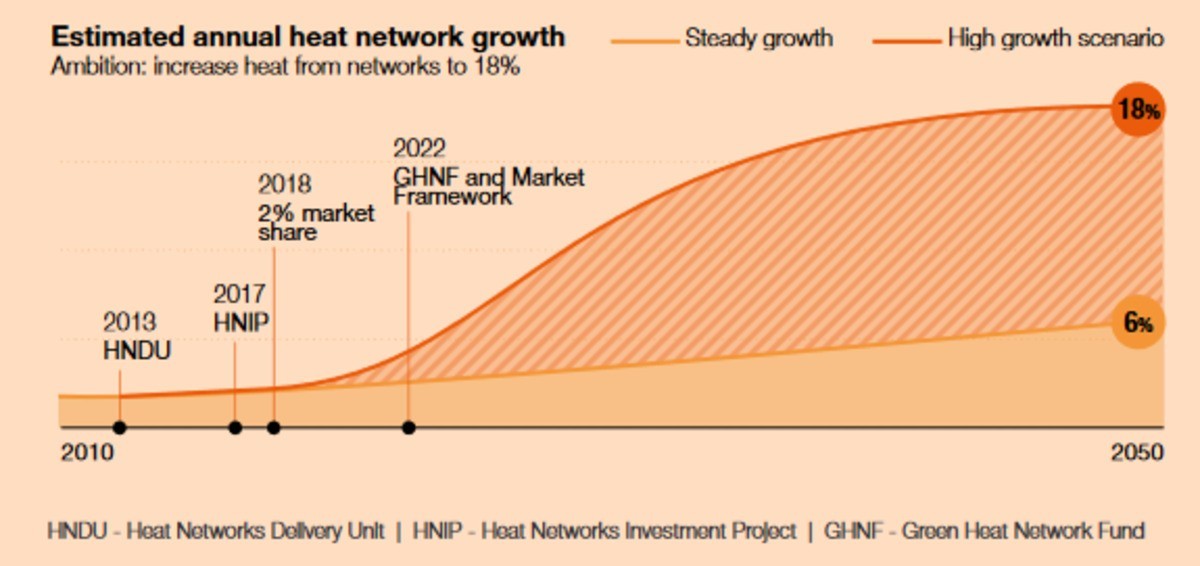
Heat Network Zoning
The UK heat network zoning proposed legislation is based on the expectation that within the designated zones, heat networks would provide the;
“Lowest Cost, Low Carbon Solution for Decarbonising Heat”
By designating heat network zones, the UK government aims to create more commercial certainty for low carbon heat network investors and developers, with opportunities for 5th Generation District Heating and Cooling (5GDHC) roll-out.
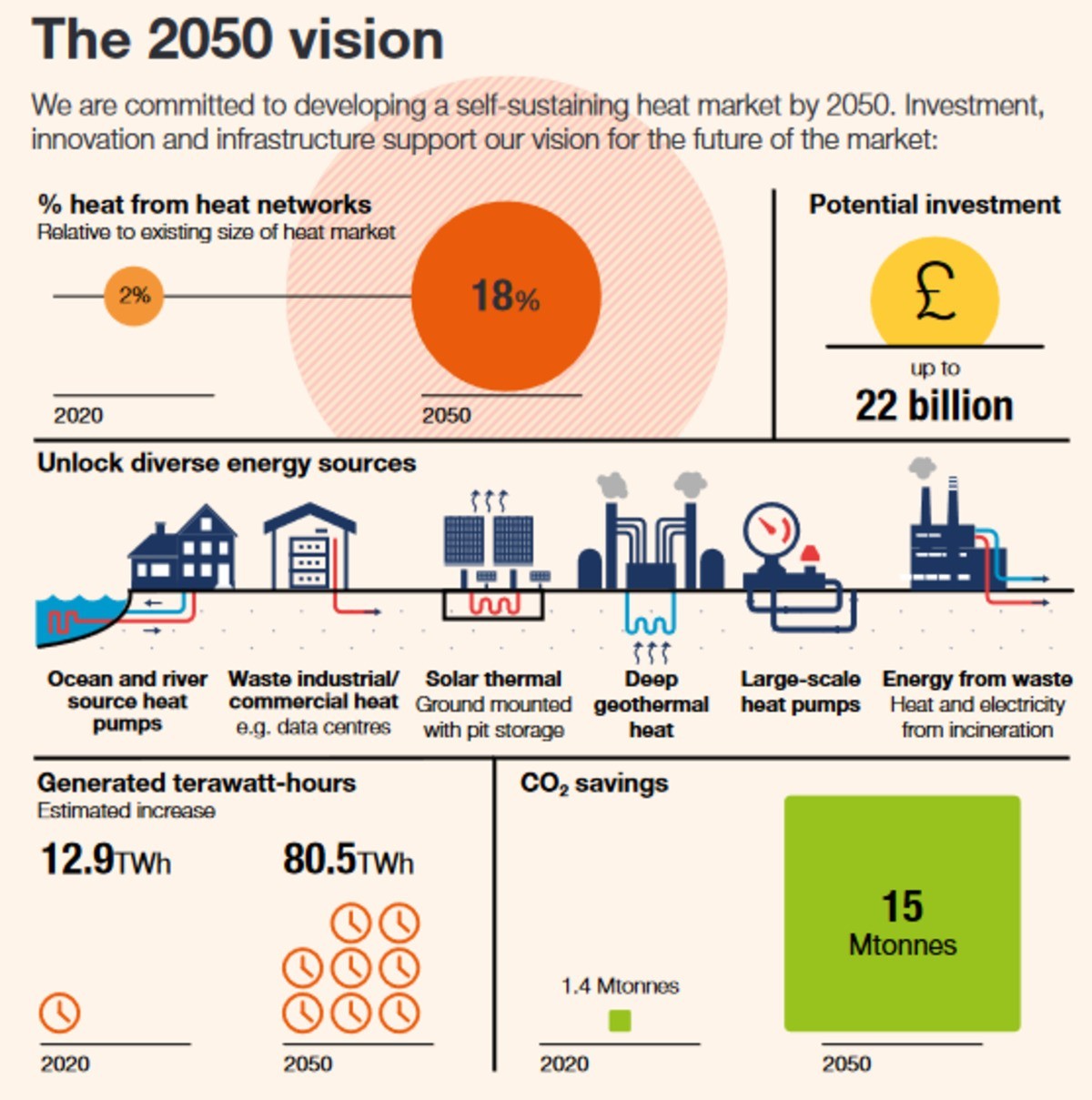
UK Heat Network Zoning Pilot
To initiate the UK heat network zoning proposals, a Heat network zoning (HNZ) Pilot Programme is underway in 28 English cities and towns of varying sizes. Overseen and funded by the UK Government department BEIS, the programme includes testing the methodology and HNZ model that will part-automate the identification of heat network zones, ensuring that the outputs are relevant to stakeholders, the local areas and that the methodology is consistent across the country.
D2Grids partners, Plymouth City Council and Nordic Energy are both involved in the Heat Network Zoning Pilot, with Witteveen & Bos / Nordic Energy managing the programme in Sheffield, Peterborough, and Stoke-on-Trent.
As one of the cities taking part, Plymouth City Council is working with BEIS consultants and relevant stakeholders to collate key information to inform the model.
The pilots will inform the development of any national methodology that is introduced in the future and will feed into overall policy development.
Data has been gathered from a range of stakeholders, including details of heating and cooling demand and of potential sources of heat/waste heat.
Plymouth, a city of 250,000 in the South West of the UK, has already created ‘District Energy Opportunity Areas’ within its Supplementary Planning Document supporting the Plymouth & SW Devon Joint Local Plan, to give clarity to developers, for new developments, on how the planning policy will be implemented in respect of making heat network connections or future-proofing developments for connection.
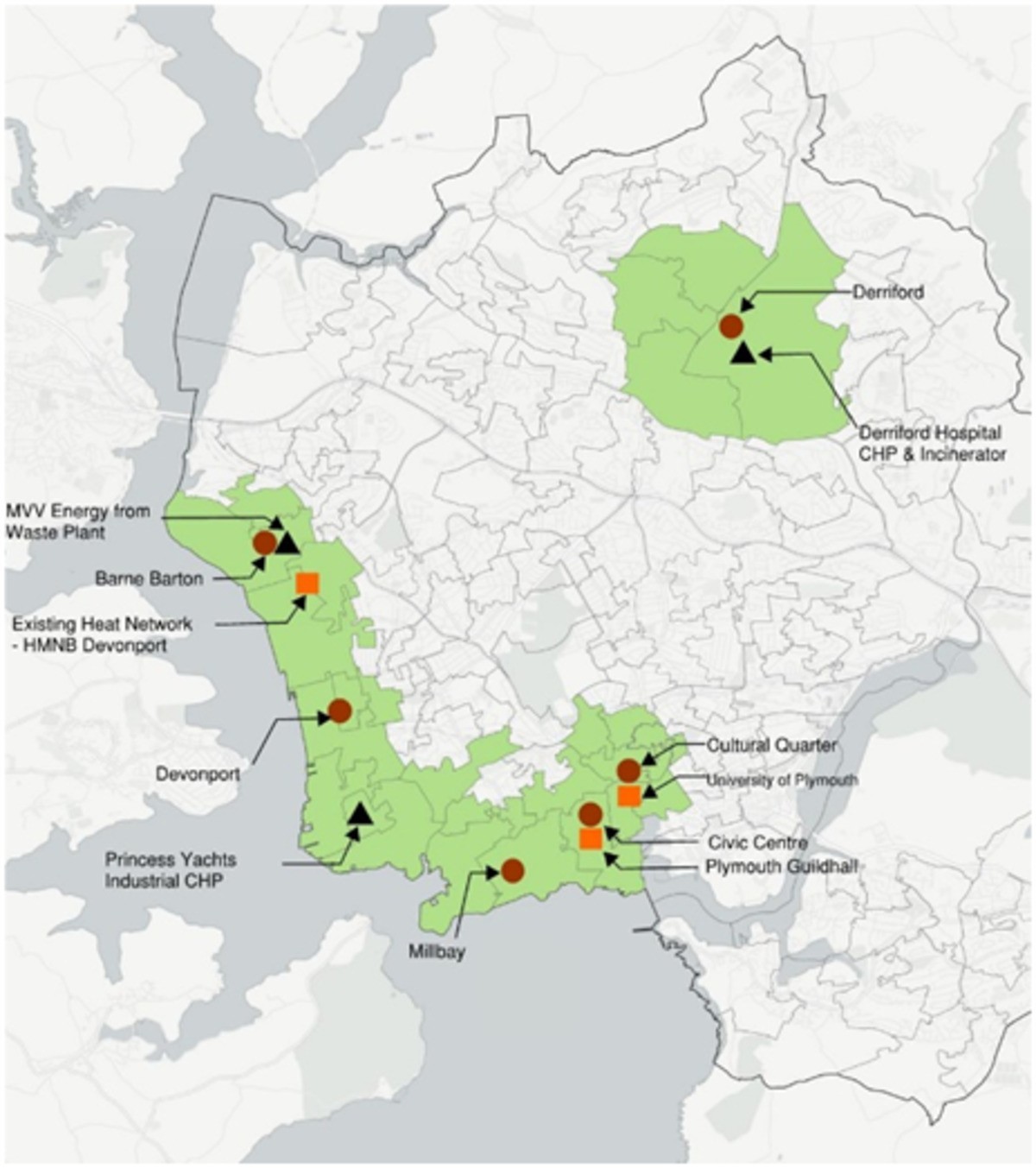
Plymouth has also taken a further step by designating a ‘Low Temperature Building Zone’ to assist connection to the 5th generation network, where this potential exists, for example, in the City Centre where there are significant cooling loads.
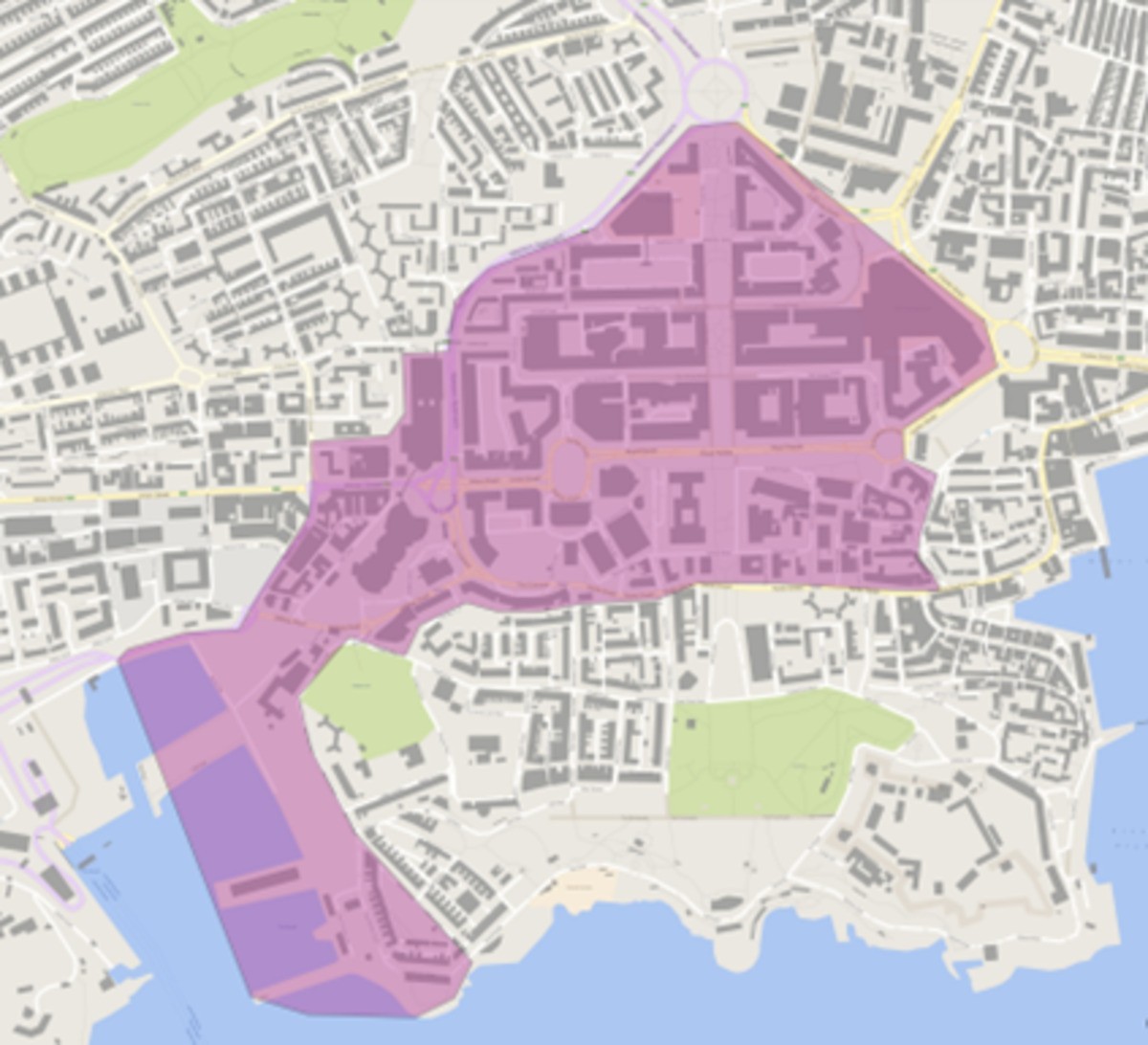
https://new.plymouth.gov.uk/district-energy
The existing zoning approach is used by Plymouth principally for negotiations with new developments, rather than to support the retrofit of existing buildings.
Conclusion:
Legislation is a critical element in effecting structural change in national and local energy infrastructure.
It is expected that the proposed UK Government heat network zoning legislation will significantly stimulate the roll-out of heat networks, helping to achieve local government zero carbon ambitions. This will provide a great opportunity to the developers of all networks, and particularly 5GDHC networks, given the effectiveness of 5GDHC in providing secure, cost effective and decarbonised heating and cooling.
The rise in energy prices during 2021 and 2022 has significantly increased the appetite of energy developers and investors in the UK to explore the potential of heating and cooling networks.
In Plymouth, the heat network zoning pilot project has enabled conversations with stakeholders that have resulted in the identification of new strategic low carbon energy opportunities across the city and built greater consensus.
Photo credits: https://fr.depositphotos.com
paul.capgras[a]construction21.fr




